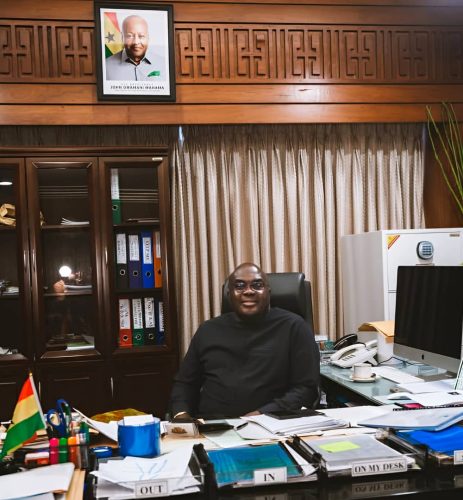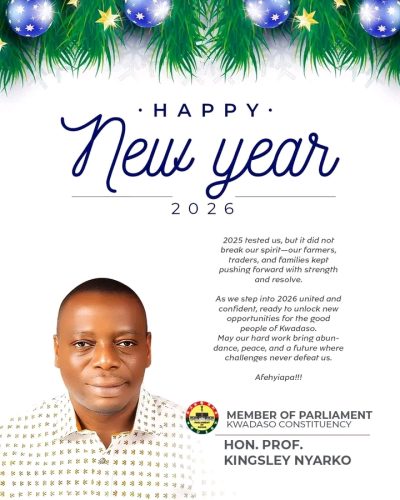

By Enock Akonnor (Managing Editor) enockakonnor2013@gmail.com

+233 541921562

The hardworking Minister for Communication, Digital Technologies and Innovations, Hon. Samuel Nartey George (MP), has called for urgent and comprehensive reforms to create a sustainable, credible, and future-ready broadcasting industry in Ghana.




Delivering the keynote address at the “Broadcasting at the Crossroads” forum organized by the Africa Media Bureau (AMB), Citi/Channel One, in collaboration with the Ministry, the Minister emphasized the critical role of broadcasting in national development.
“Broadcasting is a pillar of national cohesion, a driver of innovation, and a safeguard of democratic participation,” Hon. Nartey George stated, underlining the need for a media landscape built on fairness, resilience, and innovation.

A Gathering for Change
The event, themed “Aligning Policy, Technology, and Global Best Practices for a Resilient Media Landscape,” brought together key stakeholders, including policymakers, regulators, media professionals, and dignitaries such as former President John Agyekum Kufuor. Participants deliberated on the evolving challenges and opportunities facing the broadcasting sector in Ghana and across Africa.
State of the Industry
Ghana is home to more than 700 FM radio stations and over 100 television channels, placing its media landscape among the most vibrant in Africa. However, Hon. George cautioned that vibrancy in numbers must be matched by quality and accountability.





“Some license holders remain inactive years after receiving authorization, while others operate in violation of compliance requirements. These gaps erode both service standards and public trust,” he noted.
Strengthening Compliance and Regulation
The Minister announced that the government, through the National Communications Authority (NCA), is ramping up enforcement efforts. He urged broadcasters to renew their licenses on time, pay regulatory fees, and comply with both technical and content standards.
“As your presenters hold the government accountable, you must also ensure your stations remain in good regulatory standing,” he added.
While reaffirming the government’s commitment to editorial independence, Hon. George stressed that no broadcaster, traditional or digital is exempt from regulatory oversight. He condemned unethical content, including money-doubling scams, exploitative religious programming, and sexually explicit material, warning that such broadcasts threaten national values and cohesion.
Addressing DTT Platform Sustainability
The Minister also turned attention to the financial sustainability of Ghana’s Digital Terrestrial Television (DTT) platform, which was launched in 2016. He revealed that the government has been solely funding its operations for nearly a decade, even as over 45 channels using the platform have not paid the required fees, largely due to legal and policy loopholes.
“The free ride is nearing its end,” Hon. George warned, announcing plans to engage stakeholders in crafting a cost-sharing model to ensure the platform’s long-term viability.
Leveraging Technology and Global Standards
Looking ahead, the Minister encouraged media houses to embrace emerging technologies, including artificial intelligence, 5G, and hybrid content delivery platforms.
He also highlighted the importance of investing in digital skills to stay competitive in a fast-evolving global media landscape.
“Our regulatory frameworks must adapt to technological change, ensuring we balance innovation with consumer protection,” he stated.
A Five-Point Reform Agenda
To drive meaningful change, Hon. Nartey George outlined five strategic priorities for the future of Ghana’s broadcasting sector:
1. Strict enforcement of authorisation requirements.
2. Modernising regulation to reflect digital convergence.
3. Promoting investment in local content and media literacy.
4. Adopting and integrating emerging technologies.
5. Enhancing regional collaboration and aligning with global best practices.
In closing, the Minister reaffirmed the government’s commitment to building a forward-looking broadcasting ecosystem that is inclusive, ethical, and technologically advanced.
Source; www.leakyghana.com

Enock Akonnor is an experienced Ghanaian journalist, based in Kumasi and currently serves as the CEO and Managing Editor of www.leakyghana.com.
With a wealth of expertise built over many years in the media industry, he has earned a solid reputation as one of Ghana’s most sought-after journalists.
Contact:
📞 +233 541 921 562
✉️ enockakonnor2013@gmail.com









